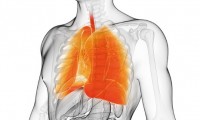-
Focusing on China, Novartis Helps Promote the Development of the Radiopharmaceutical Industry
- Source: drugdu
- 365
- April 24, 2024
-
CureVac and MD Anderson Cancer Center partner to develop new cancer vaccines
- Source: drugdu
- 435
- April 24, 2024
-
New clinical trial aims to investigate skin patches to spot lung transplant rejection
- Source: drugdu
- 261
- April 24, 2024
-
Use of Popular Pain Reliever During Pregnancy Not Linked to Neuro Disorders in Kids
- Source: drugdu
- 526
- April 23, 2024
-
FDA Approves Takeda’s Subcutaneous Form of Entyvio as a Maintenance Therapy in Adults with Moderately to Severe Crohn Disease
- Source: drugdu
- 535
- April 23, 2024
-
Low-Cost Point-Of-Care Diagnostic to Expand Access to STI Testing
- Source: drugdu
- 476
- April 23, 2024
-
AI Tool Precisely Matches Cancer Drugs to Patients Using Information from Each Tumor Cell
- Source: drugdu
- 476
- April 23, 2024
-
ANKE Bio marketing management team went to Jingze Bio to promote the cooperation between the two sides to reach substantial progress
- Source: drugdu
- 269
- April 23, 2024
-
Vertex’s pain drug suzetrigine advances in FDA approval process
- Source: drugdu
- 519
- April 23, 2024
-
Researchers introduce new AI tool to help clinicians capture uncertainty in medical images
- Source: drugdu
- 250
- April 23, 2024
your submission has already been received.
OK
Subscribe
Please enter a valid Email address!
Submit
The most relevant industry news & insight will be sent to you every two weeks.

















